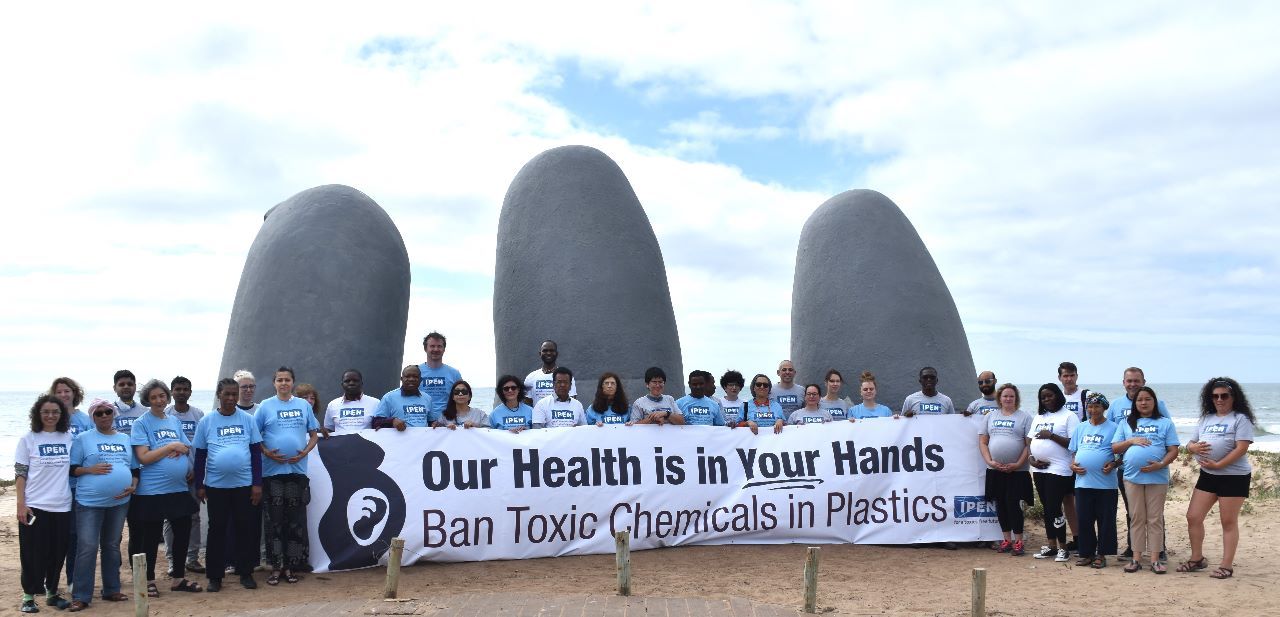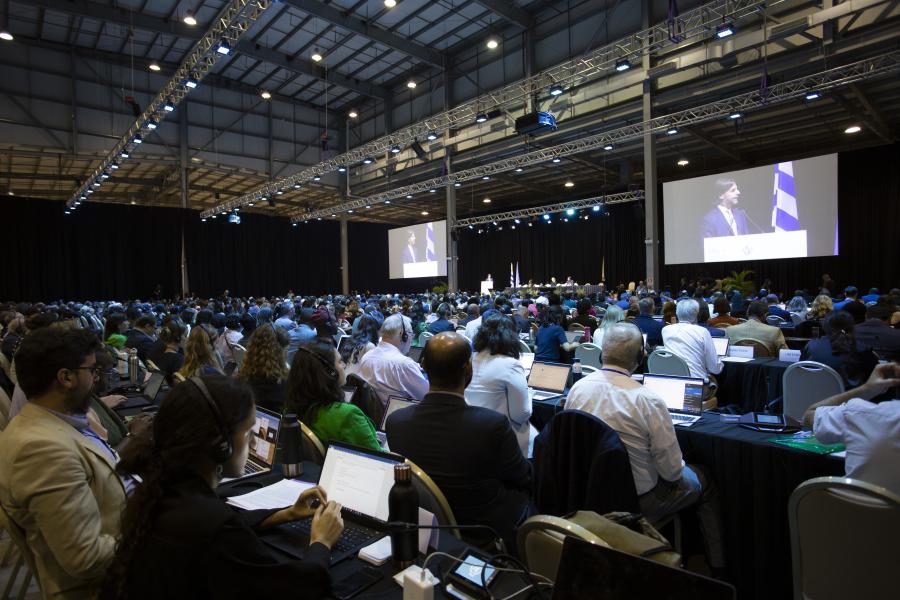End plastic pollution: Towards an international legally binding instrument
News from the first session of the Intergovernmental Negotiation Committee (INC) to develop an international legally binding instrument on plastic pollution.
30 November 2022, Punta del Este, Uruguay - Representatives of governments, civil society, business, academia and other stakeholders have gathered this week in Punta del Este, Uruguay, for the First meeting of the Intergovernmental Negotiating Committee (INC-1) to develop an international legally binding instrument on plastic pollution, including in the marine environment.
Coalition Clean Baltic, and some of its Member Organizations, including the Swedish Society for the Nature Conservation, Ecoproject Partnership, and Ecoidea joined the negotiations along with many other civil society groups and movements around the world: IPEN, Break Free from Plastic, and Zero Waste Europe among the others.

Credit: IPEN
CCB believes that the Plastics Treaty process is an important opportunity to protect marine environment and public health from the harms of plastic, and ensure that global, and national control are in place to address the toxic impacts of chemicals and plastic, throughout their lifecycle.
At least 14 million tons of plastic end up in the global ocean every year. Plastic pollution threatens food safety and quality, human health, coastal tourism, and contributes to climate change. Marine litter is a clearly visible problem for the Baltic Sea, and its coastline, and around 70% of the marine litter in the Baltic Sea is plastic.
“The current situation with plastics represents an example of unsustainable consumption and production model with harmful impacts on human health and the environment, especially on the marine environment”, comments Eugeniy Lobanov, CCB Hazardous Substances and Marine Litter Working Area Leader, and participant of INC 1 in Uruguay. He continues: "We advocate for a strong Plastic Treaty, which will address plastic pollution throughout the full lifecycle of plastics. We think that the future Treaty shall address the whole lifecycle of plastic as a material in general rather than addressing specific plastic products or waste. It is also important that the treaty shall address the harmful health effects from chemicals in plastics, and recognize that toxic chemicals make plastic incompatible with a circular economy approach.”
RESOURCES:
- UNEP online resource page for INC 1, UNEP 2022
- ISSD Daily Coverage of INC 1, IISD
- Resources on Marine litter, HELCOM
- An introduction to Plastics and Toxic Chemicals, IPEN, 2022
- Plastic & Health: The Hidden Costs of a Plastic Planet, CIEL et al., 2019
- IPEN INC 1 Quick views: A Plastic Treaty to End Plastic Pollution, IPEN, 2022
***
Article written by Eugeniy Lobanov, CCB Hazardous Substances Working Area Leader.


